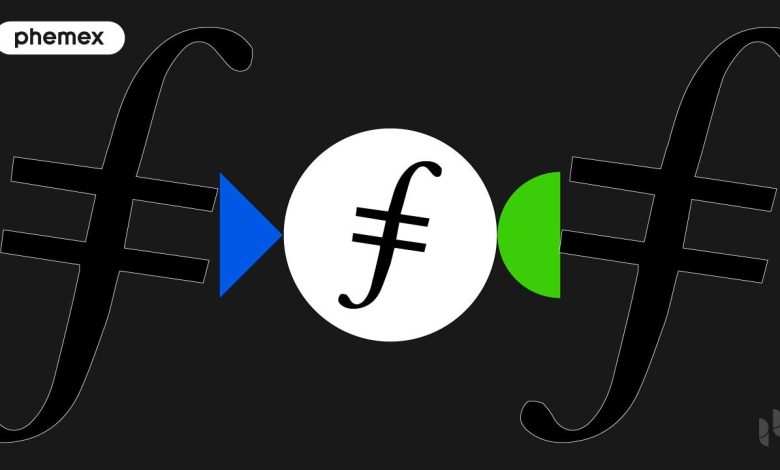Filecoin (FIL): The Decentralized Storage Network

- Understanding Filecoin: A Breakdown of the Decentralized Storage Network
- The Future of Data Storage: How Filecoin is Revolutionizing the Industry
- Filecoin vs. Traditional Cloud Storage: A Comparison of Features and Benefits
- How Filecoin Works: Exploring the Technology Behind the Decentralized Storage Network
- Filecoin Mining: A Guide to Earning FIL Tokens by Providing Storage Space
- The Impact of Filecoin on Data Privacy and Security: What Users Need to Know
Understanding Filecoin: A Breakdown of the Decentralized Storage Network
Filecoin is a decentralized storage network that aims to revolutionize the way data is stored and accessed online. By leveraging blockchain technology, Filecoin allows users to rent out their excess storage space to others in exchange for Filecoin tokens. This creates a decentralized network of storage providers, making it more secure and reliable than traditional centralized storage solutions.
One of the key benefits of Filecoin is its ability to provide a more cost-effective and efficient storage solution compared to traditional cloud storage providers. By utilizing unused storage space from individuals and businesses around the world, Filecoin is able to offer competitive pricing while ensuring data is securely stored across multiple locations.
Filecoin operates on a proof-of-replication and proof-of-spacetime consensus mechanism, which ensures that storage providers are actually storing the data they claim to be storing. This adds an extra layer of security and trust to the network, making it a viable option for individuals and businesses looking to store sensitive information.
The Future of Data Storage: How Filecoin is Revolutionizing the Industry
The future of data storage is rapidly evolving, with new technologies like Filecoin leading the way in revolutionizing the industry. Filecoin is a decentralized storage network that allows users to store and retrieve data in a secure and efficient manner. By leveraging blockchain technology, Filecoin ensures that data is stored across a network of nodes, making it resistant to censorship and tampering.
One of the key advantages of Filecoin is its ability to incentivize users to contribute their storage space in exchange for Filecoin tokens. This creates a marketplace where users can buy and sell storage space, ensuring that data is stored in a cost-effective and decentralized manner. Additionally, Filecoin uses cryptographic proofs to verify that data is being stored correctly, providing an extra layer of security.
As the demand for data storage continues to grow, Filecoin is well-positioned to meet the needs of individuals and businesses alike. Its decentralized nature ensures that data is not controlled by any single entity, reducing the risk of data loss or manipulation. With its innovative approach to data storage, Filecoin is set to revolutionize the industry and pave the way for a more secure and efficient future.
Filecoin vs. Traditional Cloud Storage: A Comparison of Features and Benefits
When comparing Filecoin to traditional cloud storage solutions, it becomes evident that there are several key differences in features and benefits that set them apart. Here is a breakdown of how Filecoin stands out:
- Decentralization: Unlike traditional cloud storage, which relies on centralized servers, Filecoin operates on a decentralized network of storage providers. This means that data is not stored in a single location, reducing the risk of data loss or downtime.
- Security: Filecoin uses advanced encryption techniques to secure data, making it highly resistant to hacking and unauthorized access. This provides users with peace of mind knowing that their data is safe and protected.
- Cost-Effectiveness: With Filecoin, users only pay for the storage space they use, making it a cost-effective solution for businesses and individuals alike. Traditional cloud storage often requires users to pay for a set amount of storage, regardless of how much is actually used.
- Flexibility: Filecoin allows users to easily scale their storage needs up or down as required, providing flexibility that is not always possible with traditional cloud storage solutions. This makes it ideal for businesses with fluctuating storage requirements.
- Community-driven: Filecoin is built on a community-driven model, where users can participate in the network by providing storage space and earning rewards in return. This creates a collaborative ecosystem that benefits all participants.
In conclusion, Filecoin offers a decentralized, secure, cost-effective, flexible, and community-driven alternative to traditional cloud storage solutions. Its innovative approach to storage makes it a compelling choice for those looking to store their data in a secure and efficient manner.
How Filecoin Works: Exploring the Technology Behind the Decentralized Storage Network
Filecoin operates as a decentralized storage network that allows users to store and retrieve data in a secure and efficient manner. The technology behind Filecoin is based on blockchain and utilizes a unique consensus mechanism known as Proof of Replication. This mechanism ensures that data stored on the network is replicated across multiple nodes, enhancing redundancy and data integrity.
When a user uploads a file to the Filecoin network, it is divided into smaller pieces and distributed across a network of storage miners. These miners compete to provide storage space and earn Filecoin tokens in return. The decentralized nature of the network ensures that no single entity has control over the data, making it resistant to censorship and tampering.
Filecoin uses a native cryptocurrency called FIL to incentivize storage miners to provide their resources to the network. Users can pay miners in FIL to store their data, and miners are rewarded with FIL for storing and retrieving data efficiently. This economic model ensures that the network remains robust and sustainable over time.
Filecoin Mining: A Guide to Earning FIL Tokens by Providing Storage Space
Filecoin mining is a process where individuals or entities can earn FIL tokens by providing storage space on the decentralized network. This helps to create a more efficient and secure way of storing data, as well as incentivizing users to contribute to the network’s growth.
By becoming a Filecoin miner, you can help to support the network by storing and retrieving data for other users. This process involves allocating a certain amount of storage space on your computer or server to store encrypted data. In return for providing this service, miners are rewarded with FIL tokens.
To start mining Filecoin, you will need to set up a mining node and connect it to the Filecoin network. This will allow you to start storing and retrieving data for other users, earning FIL tokens in the process. It’s important to note that mining Filecoin requires a certain level of technical expertise and resources, so it may not be suitable for everyone.
Overall, Filecoin mining can be a lucrative way to earn FIL tokens while also contributing to the growth and security of the decentralized storage network. By providing storage space and helping to store and retrieve data, miners play a crucial role in ensuring the network functions smoothly and efficiently.
The Impact of Filecoin on Data Privacy and Security: What Users Need to Know
Filecoin (FIL) has a significant impact on data privacy and security, offering users a decentralized storage network that prioritizes the protection of their information. By utilizing blockchain technology, Filecoin ensures that data is encrypted, distributed, and stored across a network of nodes, making it highly secure and resistant to unauthorized access.
One of the key benefits of Filecoin is its ability to provide users with greater control over their data. Unlike traditional centralized storage systems, where data is stored on a single server controlled by a third party, Filecoin allows users to store their data across multiple nodes, reducing the risk of data loss or corruption. This decentralized approach not only enhances data security but also ensures that users have full ownership of their information.
Furthermore, Filecoin’s use of smart contracts enables users to set specific access permissions for their data, ensuring that only authorized parties can view or modify it. This added layer of security helps protect sensitive information from potential breaches or cyber attacks, giving users peace of mind knowing that their data is safe and secure.
Overall, Filecoin’s emphasis on data privacy and security makes it an attractive option for individuals and businesses looking to safeguard their information in an increasingly digital world. By leveraging blockchain technology and decentralized storage solutions, Filecoin offers users a reliable and secure platform for storing and managing their data, without compromising on privacy or security.



